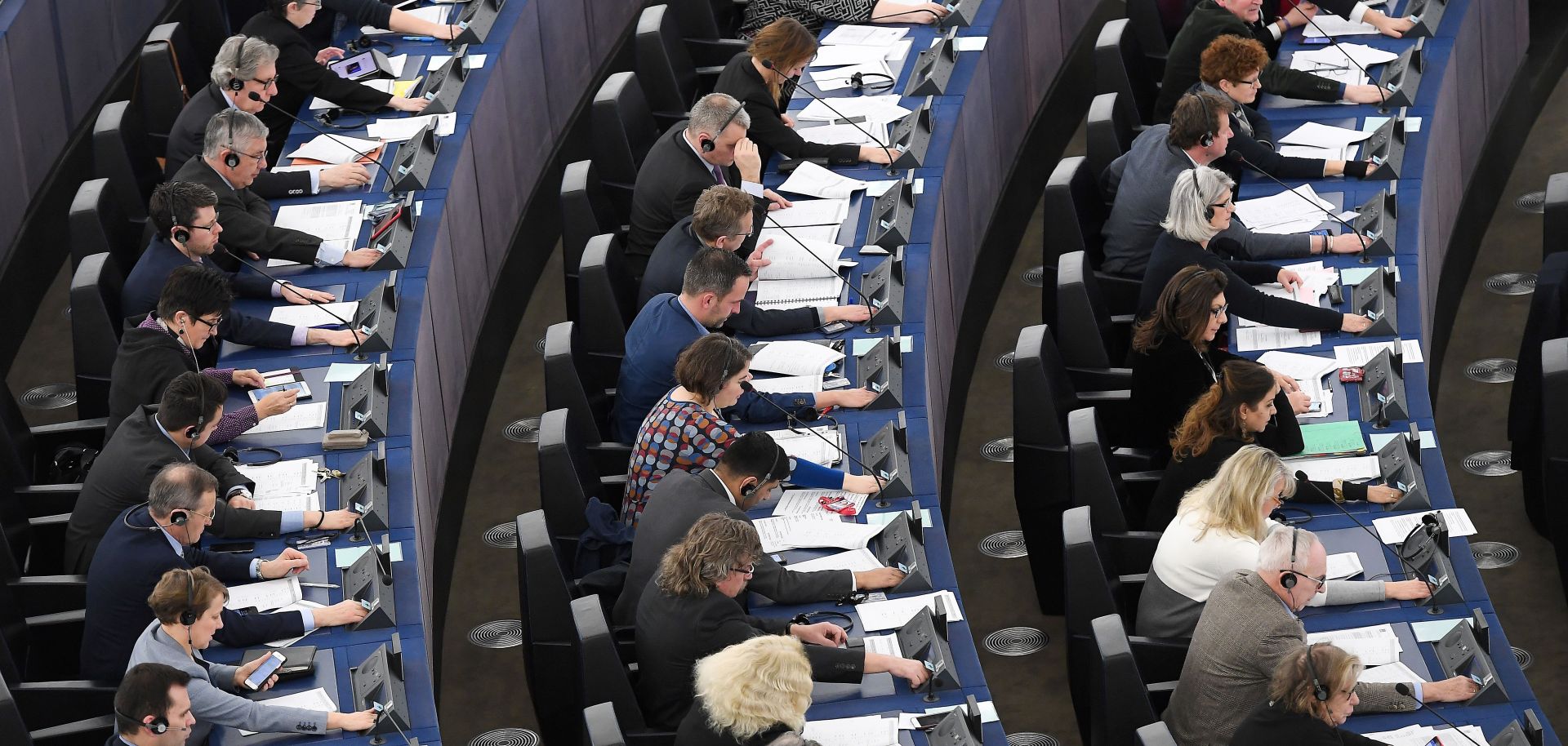ASSESSMENTS
The Elections for the EU Parliament Promise Further Fragmentation
Feb 22, 2019 | 10:00 GMT

Members of the European Parliament take part in a voting session in February 2019.
(FREDERICK FLORIN/AFP/Getty Images)
Highlights
- The upcoming elections for the European Parliament will likely result in a more fragmented legislature, which will lead to a slower and more complex policymaking process.
- Nationalist parties will likely increase their representation in the parliament, but not enough to take control of the legislative process.
- The voting will mark the beginning of the political negotiations between EU governments to appoint the next president of the European Commission, the bloc’s executive arm.
- The elections will also influence the political strategies of the governments in large EU member states, including Germany, France and Italy.
Subscribe Now
SubscribeAlready have an account?
